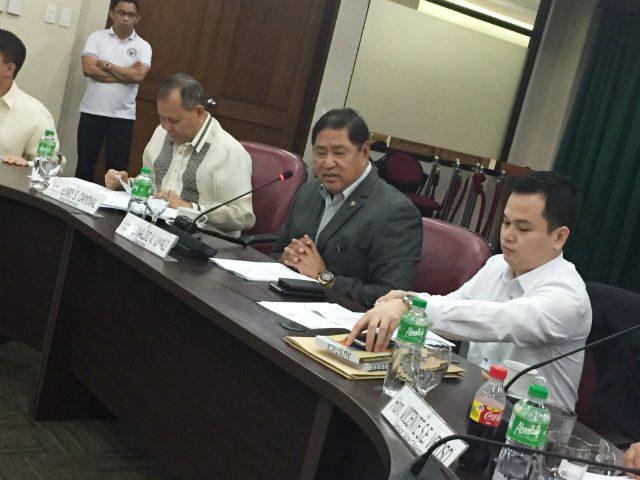SUMMARY
This is AI generated summarization, which may have errors. For context, always refer to the full article.

MANILA, Philippines – The House justice panel unanimously approved its committee report explaining lawmakers’ reasons for junking the impeachment complaint filed against President Rodrigo Duterte by Magdalo Representative Gary Alejano.
The voting on Monday, May 22, lasted only a little over 11 minutes. Last week, lawmakers deemed the complaint sufficient in form but insufficient in substance after 4 hours. (READ: House committee junks Duterte impeachment complaint)
The panel said Alejano’s lack of direct personal knowledge of his accusations made them reject the impeachment complaint.
The panel also recommended the Rules of Procedure in Impeachment Proceedings be amended to “explicitly allow” the dismissal of an impeachment complaint based on insufficiency in form.
Currently, impeachment complaints must undergo two tests in the committee level – sufficiency in form and sufficiency in substance. The panel can only decide whether or not to junk an impeachment complaint after assessing its sufficiency in substance.
“Finally, the Committee on Justice recommends that the Rules of Procedure in Impeachment Proceedings of the House of Representatives be amended to explicitly allow the dismissal of impeachment complaints based on insufficiency in form,” said the report.
According to the committee report, Alejano testified under oath saying he had “personal knowledge” of his allegations against Duterte.
These include the President’s alleged involvement in the Davao Death Squad, the ongoing bloody war against drugs, the hiring of “ghost” employees when Duterte was still Davao City mayor, his supposed unexplained wealth, and the President’s approach in handling the West Philippine Sea (South China Sea) dispute.
But Majority Leader Rodolfo Fariñas grilled Alejano and made the latter admit he merely based his accusations on online sources, newspaper reports, and other intelligence materials.
This was not acceptable to the justice committee members.
“[The] members of the committee stated that the term ‘personal knowledge’ as used in the Verification refers to knowledge or information that are derived from one’s own perception, and that knowledge derived from secondary sources do not constitute ‘personal knowledge’ and are therefore considered hearsay,” said the committee report.
Alejano also admitted his lawyer prepared Annexes A to F of the complaint, but the documents did not contain his lawyer’s signature.
The justice committee voted 41-1-0 to say the impeachment complaint was sufficient in form, “despite some defects, based on liberality and in the interest of substantial justice.”
The impeachment complaint, however, was no longer deemed sufficient in substance by all 42 legislators present during the hearing last week.
This is because Section 4, Rule III of the Rules of Procedure in Impeachment Proceedings states an impeachment complaint is sufficient in form if:
- There is a recital of facts.
- The recital of facts constitutes the offense charged which are determinative of the jurisdiction of the committee.
Duterte enjoys a strong legislative shield in the House, where he counts at least 267 out of 292 lawmakers as his allies.
A total of 121 lawmakers are also members of the President’s party, the Partido Demokratiko Pilipino-Lakas ng Bayan (PDP-Laban).
Oriental Mindoro 2nd District Representative Reynaldo Umali, justice committee chairman, is also a PDP-Laban member. – Rappler.com
Add a comment
How does this make you feel?
There are no comments yet. Add your comment to start the conversation.